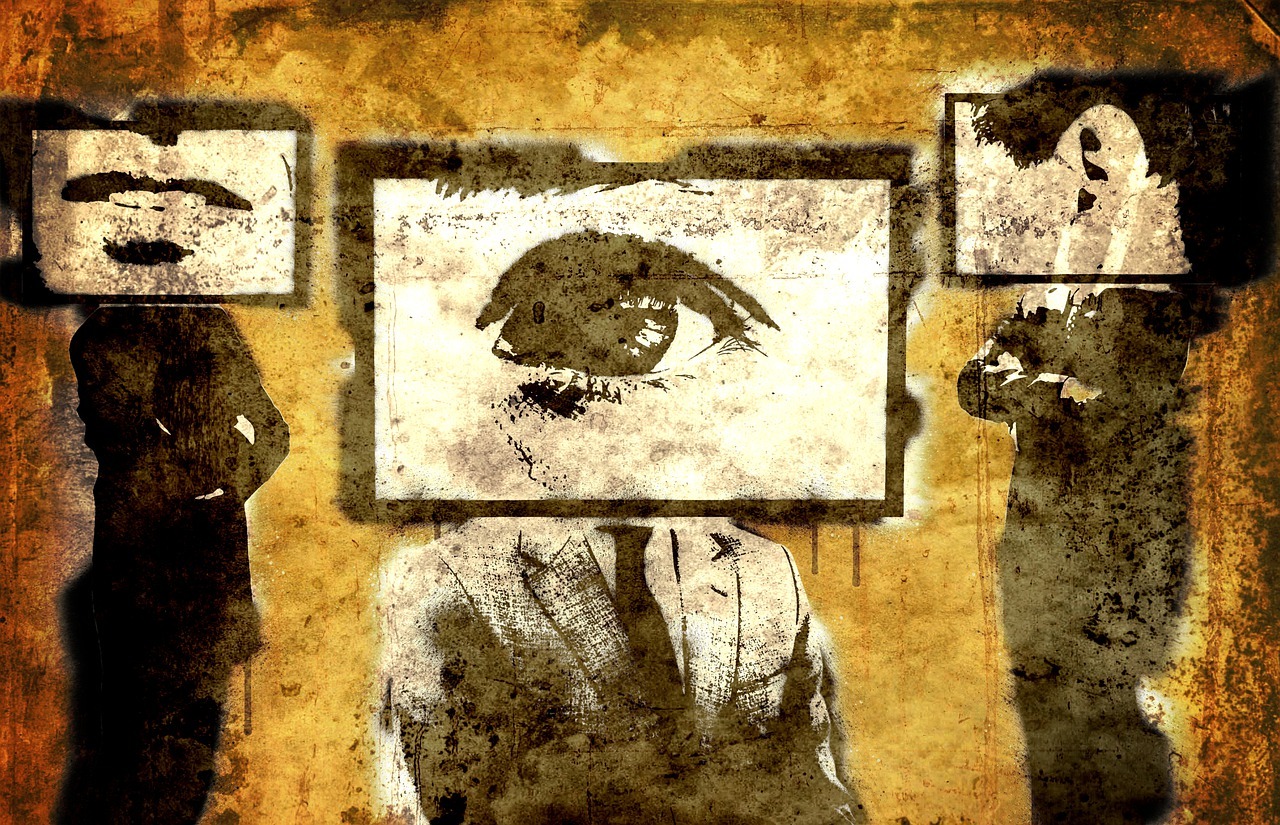The realm of political scandals often remains shrouded in mystery, only to be unveiled by the courageous acts of whistleblowers. These individuals, driven by a sense of moral duty, play a pivotal role in exposing misconduct, especially within government bodies and political organizations. Whistleblowing, a term that conjures up images of secret revelations and ethical dilemmas, has become a key instrument in upholding transparency and accountability in governance.
At the heart of many high-profile political scandals lie the untold stories of whistleblowers who risked their careers, personal lives, and sometimes even their safety to bring the truth to light. From exposing illegal activities to highlighting abuses of power, their contributions have been instrumental in shaping public policy and political discourse. The act of whistleblowing, while fraught with challenges, stands as a testament to the power of individual integrity in the face of systemic corruption.
The Whistleblower’s Journey
Embarking on the journey of whistleblowing is often a path fraught with emotional and psychological complexities. The decision to expose wrongdoing is seldom made lightly. It stems from a deep-seated sense of moral responsibility, often accompanied by an acute awareness of the potential personal and professional risks involved. Whistleblowers typically find themselves in a labyrinth of ethical dilemmas, weighing the importance of the truth against the potential backlash from their actions.
The risks and challenges faced by whistleblowers are multifaceted. Professionally, they might face retaliation in the form of job loss, demotion, or ostracism by colleagues. Personally, the strain can manifest in stress, legal battles, and sometimes threats to their safety and that of their families. Despite these daunting challenges, many whistleblowers are driven by a conviction that the public’s right to know supersedes the personal costs they might incur.
In many jurisdictions, there are legal protections in place to shield whistleblowers from retaliation. These laws aim to create a safer environment for individuals to come forward with information about wrongdoing. However, the effectiveness of these protections varies, and often whistleblowers find themselves navigating a precarious legal landscape.
This section of the blog aims to provide a detailed exploration of the whistleblower’s journey. It delves into the internal and external challenges they face, the motivations that drive them, and the legal safeguards designed to protect them.
Whistleblowers in Political Scandals
The landscape of political scandals is often punctuated by the courageous actions of whistleblowers, who have played instrumental roles in bringing pivotal cases to public attention. Historical examples like the Watergate scandal and the Iran-Contra affair are testament to this. In the Watergate scandal, it was the information from “Deep Throat” (later revealed as Mark Felt, a former FBI Associate Director) that fueled investigations leading to President Nixon’s resignation. Similarly, the Iran-Contra affair was significantly escalated by the revelations from individuals within the government who were concerned about the legality of selling arms to Iran.
In more recent times, figures such as Edward Snowden and Chelsea Manning have highlighted issues of government surveillance and military secrets, respectively. Snowden’s disclosures about the NSA’s surveillance activities sparked a global debate on privacy and security, while Manning’s release of classified military documents via WikiLeaks shed light on military and diplomatic activities, stirring international discussions.
Whistleblowers can have a profound impact on public awareness and policy. They not only bring to light hidden misconduct but also trigger broader societal debates on ethics, privacy, and the balance of power in government. They play an important role in shaping public awareness and influencing policy reforms. Through their revelations, whistleblowers have prompted critical discussions on the balance between national security and individual privacy, government transparency, and the ethical conduct of international relations.
If you are looking for samples of political scandals, you may read our article about the Biggest Political Scandals of the 80s.
The Role of Whistleblowers in Democratic Societies
In democratic systems, the role of whistleblowers is indispensable. They act as a check on power, ensuring that the principles of democracy are upheld. By fostering a culture of transparency and accountability, whistleblowers contribute to the health and efficacy of democratic institutions. Their courage and commitment to truth play a critical role in maintaining the trust between the government and its citizens, a fundamental aspect of any functioning democracy.
Guardians of Transparency and Accountability
In democratic societies, whistleblowers are often seen as the guardians of transparency and accountability. By bringing hidden misconduct to light, they play an essential role in ensuring that governments and public officials remain answerable to the people they serve. This role is especially vital in democracies, where informed citizenry is the cornerstone of effective governance and public trust.
Whistleblowers and the Media
The symbiosis between whistleblowers and the media is a key aspect of their role in democracies. Media outlets often serve as the primary platform for whistleblowers to disseminate their findings, ensuring that the information reaches a broad audience. This relationship is crucial in holding those in power accountable and in sparking public debate about governmental and corporate practices.
Public Perception
Public perception of whistleblowers can be complex and varied. While many view them as heroes fighting against corruption and injustice, others may see them as traitors or dissenters, especially when national security issues are involved. The portrayal of whistleblowers in media and political discourse significantly influences this perception. Recognizing the sacrifices made by whistleblowers is vital in democratic societies, as it encourages more individuals to come forward in the future, thereby strengthening the mechanisms that safeguard the integrity of these societies.
Challenges in the Digital Age
Impact of Technology on Whistleblowing
The advent of digital technology has significantly transformed the landscape of whistleblowing. On one hand, technology has made it easier for whistleblowers to access and disseminate large volumes of information quickly and anonymously. Digital platforms have broadened the reach of their revelations, allowing them to make an immediate and widespread impact. However, this ease of access is counterbalanced by heightened risks, including advanced digital surveillance and tracking methods that can compromise a whistleblower’s anonymity and safety.
Protections in the Digital Era
As technology evolves, so too must the legal frameworks and protections available to whistleblowers. The digital age poses new challenges in safeguarding these individuals from retaliation and ensuring their rights are upheld. Traditional laws may not adequately address the nuances of digital data sharing, leaving gaps in protection for those who expose wrongdoing via digital means. There is a growing need for updated legislation and policies that recognize the unique challenges of digital whistleblowing and provide robust safeguards to those who take the risk to come forward in the digital realm.
The Future of Whistleblowing
As we look towards the future, the landscape of whistleblowing is poised for an evolution, influenced by technological advancements and shifting societal norms. Emerging trends suggest a potential increase in digital whistleblowing, facilitated by new platforms and technologies that offer greater anonymity and reach. Concurrently, there is a growing recognition of the need for robust legislative changes to protect whistleblowers more effectively. Future legislation may focus on safeguarding digital channels, providing anonymity, and offering legal and financial support to whistleblowers.
The future of whistleblowing is also likely to be shaped by the actions of international organizations and the formulation of global agreements. As cross-border data sharing and multinational corporate practices become more prevalent, the role of international bodies in setting standards and protections for whistleblowers becomes increasingly important. These organizations can facilitate collaboration between countries, fostering a global environment that is more conducive to safe and effective whistleblowing.
Whistleblowers are expected to continue playing a critical role in political landscapes around the world. Their actions will likely keep influencing policy reforms, driving transparency, and shaping public discourse on issues of governance and ethics. As societies become more interconnected and the flow of information becomes more fluid, the impact of whistleblowers on politics and governance is expected to grow, making their role ever more integral to the health of democracies.
Conclusion
Whistleblowers act as crucial catalysts for transparency and accountability, often at great personal cost. Their courage in exposing wrongdoing plays an essential role in maintaining the integrity of democratic institutions and processes. The journey of a whistleblower is fraught with challenges, yet their impact on political landscapes and public consciousness is undeniable.
Whistleblowers are not just witnesses to history; they are active participants in the pursuit of justice and truth. Their actions remind us of the ongoing need for vigilance and integrity in political affairs and the collective responsibility to support those who brave the risks to bring hidden truths to light. As we move into the future, the role of whistleblowers remains a vital pillar in upholding the principles of democracy and ethical governance.



